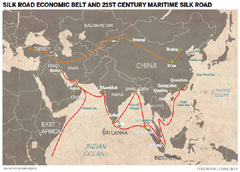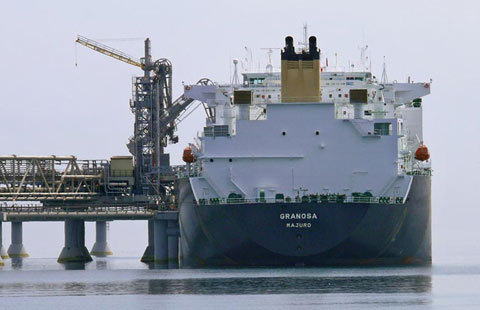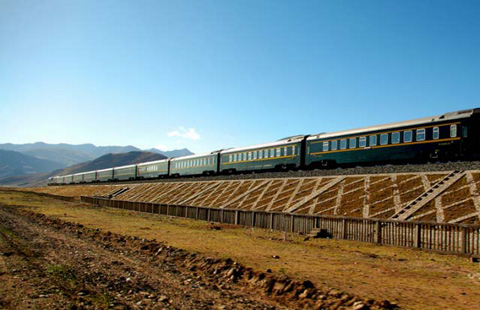Revival of ancient Silk Road 'essential' for Asian nations
By He Na and Xue Chaohua in Lanzhou (China Daily) Updated: 2014-05-29 07:42Liu's suggestions were echoed by officials and representatives of the ACD member countries who attended the meeting. They said cooperation should be extended to more fields, such as energy, environmental protection, tourism and culture.
"The ancient Silk Road was the world's most important cross-border artery for commercial, cultural and technological exchanges between East and West. Its tasks and goals remain the same nowadays, but in a more demanding way," said Nizomiddin Zohidove, Tajikistan's deputy minister of foreign affairs.
|
 |
|
 |
| Tourism to be leading industry along Silk Road |
"It's my understanding that regional connectivity should greatly involve people's contacts with the wide possibility of visits, exchanges, education, training and tourism."
He also suggested that among the important directions of the infrastructure connectivity are establishing reliable transport-transit systems, simplifying trade procedures, encouraging cross-border trade, effectively using water-power resources, creating an integrated power system and allowing free movement of goods and labor throughout the region.
Chutintorn Gongsakdi, director-general of Thailand's Department of International Economic Affairs under the Thai Foreign Ministry, said he agrees with the establishment of an infrastructure fund, and he recommended mobilizing international public and private funds for connectivity projects.
"To foster a sense of an Asian community and co-ownership, we need to incorporate the private sector and other stakeholders into the ACD framework to promote concrete cooperation at all levels," he said.
"The revived Silk Road can serve as a new driver for growth, bringing access to the global value chain to all countries and people along the path. Thailand will host a high-level forum on ACD regional connectivity later this year."
- Rail routes to fuel exports growth
- Silk Road economic cooperation to bring benefits
- Silk road leads to new opportunities
- Fund to boost China's maritime Silk Road development
- New Silk Road creates business opportunities
- Joining the dots along Xinjiang's Silk Road
- Bilateral trust key to Silk Road Economic Belt
- Xinjiang to promote Silk Road economic belt
















